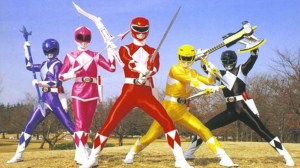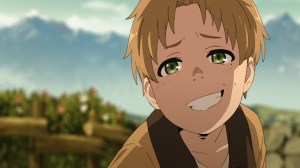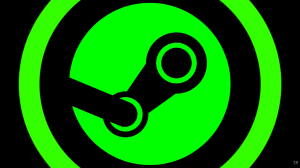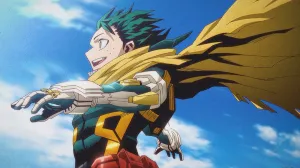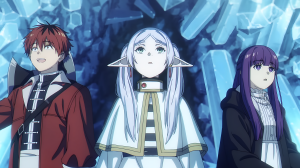William Friedkin’s 1973 The Exorcist is not only a monumental achievement in the world of horror, but is considered one of the greatest American films of all time, thanks in large part to the profound performance by young star Linda Blair. With the film seeing her square off against iconic actors like Max Von Sydow, Ellen Burstyn, and Jason Miller, the opportunity would be a dream come true for a thespian of any age, but Blair was conflicted between the pull of Hollywood and her devotion to helping animals. Luckily, Blair learned she could use her celebrity to amplify her work with animals, as she would go on to launch the Linda Blair WorldHeart Foundation in 2003.
Videos by ComicBook.com
Focusing largely on dogs, the WorldHeart Foundation details that their mission is to “alleviate suffering, while rescuing, rehabilitating and rehoming abused, neglected and abandoned animals. We aid in crisis situations, while educating, encouraging, and empowering the public to make a difference in the lives of those whom have no voice.”
In addition to spreading awareness about abandoned animals through her own foundation, Blair has also lent her support to various pieces of legislation to protect both wild animals and domesticated companions.
ComicBook.com caught up with Blair to talk about spreading awareness, the WorldHeart Foundation, and her connection to The Exorcist franchise.
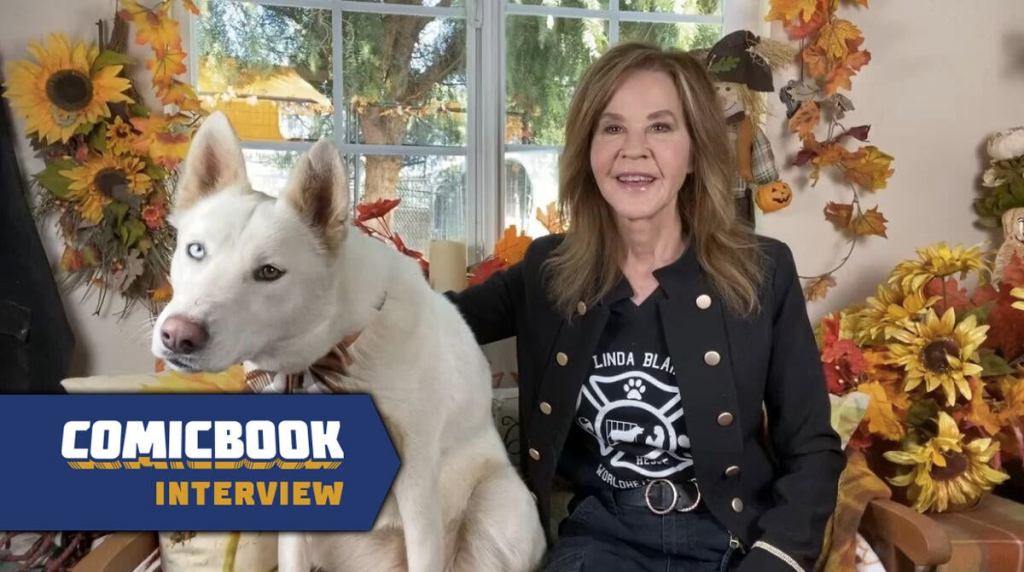
ComicBook.com: For people who might not know the difference between your foundation and other foundations, what do you feel it is about WorldHeart that really sets itself apart from what some of these other organizations might be aiming to accomplish?
Linda Blair: It’s really quite simple to explain. When I was a child, I used to tell my mother that I wanted to be a doctor to the animals, and she would smile and she’d say, “Okay.” Well, that’s how I got involved with doing modeling commercials out of New York. She thought it was a way for me to save my money to go to the school of my choice, deciding on what I did want to be as an adult. That’s how I got started doing modeling and commercials, little movies out in New York City. I was raised in Connecticut, and it was very similar to Oregon, a lot of woods, a lot of nature, so you’re interacting with nature, so you start to understand it better than, let’s say, in a city.
As I got older, when The Exorcist came along, and we’ll talk about that later, it changed the course of my life. But inside, my spirit never changed and I always had animals. I got very involved with horses for many, many years. Then I was doing a play in Los Angeles called Women Behind Bars, and I would leave my Jack Russell at home. I had a dog door, and, unfortunately, on one occasion I came home and she was not there. Somebody had stolen her out of my backyard. I went on every TV show, any newspaper, flyers everywhere, begging to return her, and it devastated me for life.
I got involved with a group called Last Chance for Animals run by Chris DeRose who’s a former police officer, and with him, we did a lot of different investigations about pet theft, about animal experimentation. It was very hardcore learning and quite shocking but I participated in stakeouts and many different things that people wouldn’t believe that that’s what I was doing, but it was necessary as part of the team.
Through that, you’ll meet … The Humane Society of the United States, for instance, all of us would come across each other, the ASPCA, trying to figure out how to make things better. Their presidents change constantly, their yearly fundraising. So one year it’s agriculture, one year it’s horses, one year it’s dogs and cats, and they changed constantly. I didn’t really understand. You meet a lot of good people.
As life went on and I’m volunteering, I questioned a lot of things, where money was going and why things weren’t changing fast enough, things that I felt were quite simple. We protested against puppy mills in Pennsylvania. Where were the big groups? They could shut this down immediately, but they weren’t and this upset me. I remember when Best Friends started, it was just what we call “tabling,” you’d sit outside a store and raise money and that’s how I got to know Best Friends.
Through the years, I worked with them for a very long time, and then I realized, in order to really make change, I needed to become my own foundation, and that’s when I started the Linda Blair WorldHeart Foundation in 2003. From there, whenever we do interviews or whenever we’re working on projects, I could speak out from a corporate point of view and not just as a civilian, so to speak, saying, “I don’t like this or I don’t like that.” You become a corporation, a nonprofit, so that you can say, “This is what I am doing and the changes I see and the public that wants to donate can know that that’s where their money is going.”
There’s a lot of charities, and when I was fighting the breed ban in 2005 in Sacramento, what that meant was they were trying to install a breed ban where you couldn’t have pit bulls anymore. I knew if that happened, it would spread across America and they would kill off a perfect breed that had done nothing wrong other than bad people getting involved, such as dog fighting. Those are the people you need to go after, not the animals. I worked with that extensively. It’s “go after the criminals and leave the animals alone.” They are always just the subject of abuse in those situations. It’s not their fault. If you abuse a teenager or a child, they’re going to come out fighting at some point. So it’s the same with the animals.
That’s why I fought and I won. I stopped the breed ban in Sacramento, but it couldn’t stop what’s called BSL, breed-specific legislation. That would be German Shepherds, that would be Huskies, that would be Mastiffs, Dobermans, Rottweilers, any big breed dogs. From there, I wasn’t home even a few weeks when Hurricane Katrina happened. I was called in because pit bulls, that was my breed that I was most familiar with and that is what was the most common breed in Louisiana. I was called in there and it was very devastating. I was able to help get the remaining 350 animals out. I ended up with 51, not by choice. We traveled to Mississippi and camped out with 51 dogs until I could get transport through Texas into New Mexico. From New Mexico, I got a motor home, I used one from another rescuer, and I transported the dogs and myself into California.
It was very difficult, left anybody that went there with PTSD, there’s no doubt. It was way too shocking. That’s why these emergency services explained that nobody’s really coming. You need to make the proper choices ahead of a fire, ahead of a flood. And so through the years, during that time, I wanted to know, “Where should I tell the public to give their money for the human side?” I dictated where I felt that the money, “This group would delve out the money properly. This one, eh, not so sure.” That’s where everybody’s questions lie years later. There’s so many charities, whether they’re animals, human, children, seniors, environment, and you need to do your due diligence to know who they are.
With me, people know who I am, they can see very well what I stand for. I was an environmentalist first, became a vegan. I wrote a book called Going Vegan, and it’s for the sustainability of the planet, our oceans, our land, how we farm the animals.
I was watching a story the other day, they just rounded up the last of the mustangs in Colorado. It’s not fair. There’s plenty of land, but the farmers want it for cattle, and they took away the last of the mustangs. This needs to be looked into, and those are the people that I work with, the why and how to stop it because it’s not fair. The mustangs were there way before the cattlemen were farming cattle. We need to cut back on the meat because there’s a lot of questions on health, the connection, and that’s why those of us that are vegetarian and vegan want to make a more sustainable planet and help people understand.
You’ve accomplished so much as a spokesperson for WorldHeart and I know you mentioned how, when you were a kid, you wanted to become a veterinarian. When you look back on your career, are there times where you wish that you had pursued a career in veterinary medicine? Or do you now see how much good, if not directly healing animals, seeing what you’ve been able to do through the WorldHeart Foundation, would you trade careers if you could do it all over again?
It’s a question that I’ve asked myself many times. There was no choice on how my life went. It wasn’t a choice. When we did The Exorcist and the world fame, popularity that came from it, but it was also so controversial because people didn’t understand me.
Warner Bros. sent me all around the world; England, Australia, Japan. It was a different time. It was still very old-fashioned. For instance, when I went to Japan, they didn’t speak English and I had to have an interpreter and it turned out she was a 15-year-old girl that was Warner Bros.’ daughter, and she was the interpreter because she spoke English. I had to wear a kimono, it was very strict. A lot of people don’t realize just 50 years ago how times were so different.
As it goes with the business, once you get that fame, the industry puts you to work. So the next movie I did was Born Innocent, which is about child abuse. Then [Sarah T. – Portrait of a Teenage Alcoholic], which was about teenage alcoholism. I opened up a whole world to everyone that none of us really knew. I was too young. We didn’t know about child abuse and then laws were changed because of those movies and awareness was made of teenagers that we’re becoming alcoholics. None of us knew.
I’m proud of the work, but my heart, as time went on, said, “But what about me? I still want to do more.” I pursued my interest with veterinary medicine and with showing horses, I trained and showed horses, so I was working with the best and I was training for the Olympics. I was like, “Okay, that’s what I’m going to do. I’m going to just go into the world of horses.” And we fought many laws. Stefanie Powers and I were part of the law that stopped the slaughter of horses for human consumption. They were sending them overseas to France and Japan. We were part of that law that made such a difference back then, but maybe 10 years ago, they overturned it.
It’s a very political arena that we’re in with the animals. I have continued my studies. Constantly, I work very closely with good vets. It’s an interest that, some people like human anatomy, I like animal anatomy. I work very hard on the cancer, what was bringing in cancer and other illnesses with animals. And we found … It’s the food. Straightforward, it’s the food. And I talk about it as much as I can with the foundation.
But you want a bigger audience so I can help more animals. That’s really my frustration is that I want to help more, and all of this can change very simply, but we’re fighting politics. There’s a lot of politicians. There’s a lot of large groups that are stopping the forward movement to make great change.
With the food companies, every corporation wants to have so many products in their corporation. They’ll buy a brand name or they’ll add a brand that they think would be good for their company. Again, it’s just business, but it’s not for the animals or it’s not for people. Because people think, “Oh, well, it must be okay if this company owns it,” but it doesn’t mean that it is.
I try to promote products that I use and how I feed my dogs and how I’ve eliminated the cancer or reduced it in my feeding program. I would love to share it with all, but it’s very difficult to get the attention. I always say to people, “Do you have a sick animal? By all means, email us and I’ll talk to you the best I can about what my beliefs are that will help you to have a little longer time with your best friend.”
You’re so passionate about so many different causes with the environment, with animals, and you also know the importance of reaching as large an audience as possible, and your career in Hollywood has amplified your voice more than maybe some other activists. Since you have so many passions in various realms, do you think there’s a project where you could finally blend together all of these different passions of yours, between the animals, veganism, the environment, the food, and then also just your passion for Hollywood and telling stories and acting? Is there a dream project that you haven’t gotten to bring to life quite yet?
That’s a wonderful question, and thank you. I had several projects at studios and when I was developing projects, they were what I felt my fans would like, but also something that meant something to the greater good. For various reasons, they weren’t made, but we were in development. I was doing the show Scariest Places on Earth for Fox Family Channel. Fox Family Channel, I had, also, a two-movie deal with, and it was all good. Everything was moving forward in the direction I wanted, and they suddenly sold out of the blue. Fox Family just sold the company, and some of it went to Disney, some of it went other areas. Scariest Places went to Disney and they said, “We don’t do reality TV,” which is what they called it back then, “and therefore we’re not going to move forward with it.”
That was the same time I was fighting the breed ban, fighting down in Hurricane Katrina. When I got back from all of that, it took about a year before realizing, “Okay, things are needing to change. I need to get property to care for these animals properly.” I bought this property with a plan of two years, change the laws, get to the bottom of all of this and educate people and then get back to work.
I am going on to my 17th anniversary, December 5th. I am very frustrated. I am sad. Do I miss work? Absolutely. Do I believe things can change? Yes, but I don’t know how much longer that I can keep holding on. Work was always how I supplemented and helped my causes, and without having that income, I rely strictly on the public. I take care of my stuff, but I need the public to help me with this journey.
I feel that the project I created in the last two years, it’s a competition game, animal-loving show with so many different elements, I didn’t miss a beat. We have started to pitch at different studios, but the strike made it very, very difficult. Coming out of it, that’s where we’re at. I’m hoping that I can get to a good production company, to a good studio, and they will see what I see, that this would make great change for the animals, and it’s entertainment and it’s fun and it’s real and it’s loving and it’s just a wonderful show. I’m hoping that I can get it produced and that the public will have something that they can enjoy and love.
Those of us that love our animals and understand, created by humans for humans, they’re our best friends. They’re there for us through thick and thin, and they serve us in every capacity. That’s the changes that I want to see.
We have a great loss of veterinarians right now. They don’t want to work for corporations. They find out when they get out of school, “Oh, wait, it’s not quite what I thought, the job market.” We’re losing a lot of veterinarians in California, so we don’t have the access to spay and neuter, vaccinations. What happened is there’s an enormous amount of unwanted litters. There’s people that are frustrated, losing their homes. They are literally dumping animals in the desert. They’re tying horses to trees to let them die. It’s really bad what’s going on.
That’s why I wrote to the governor a 14-page document outlining what laws could be supported, what could be done, but it must change. We are at an emergency crisis here and across the country, and all of us in rescue work together the best we can, with the shelters. The shelters, they started in 1860s, the Animal Protection League, and it was meant to help do spay and neuter, vaccinations, return animals home, and to stop the overpopulation back then. Years later, it’s worse than ever. It’s very sad, and that’s what I’m fighting for right now, is to get everybody to understand what’s happening and how they can support and help us to make change.
Something that’s very clear from talking to you is how passionate you are about the animals, first and foremost, the top priority. Since you do have this built-in following from The Exorcist, and people were surprised to see you show up in The Exorcist: Believer this year when you were initially on set to just help work with the young stars of that movie. Now there’s two more movies that are on the way and it sounds to me like your priority is not so much two Exorcist movies so much as these animal causes. I know they’re still developing whatever they’re developing, so for you, would you rather see a path forward where a new actor who you’re a fan of comes in and takes over as Regan if they want to keep her a character in these upcoming movies? Or would you rather say, “I have a personal connection to this character, I’m focusing on the animals. Let’s just pivot away from those characters,” with those movies that they’re working on in the future?
The reason I’m laughing is because I’ve heard everything since 1973 through the years. Audience-wise, it’s important to pay attention to your audience. That’s with many movies, when you have a company that cares about the audience, about the actors that are part of the films or if there’s a trilogy or in a comic book world, you’ve got all the different characters. People, really, I think, besides the Joker, which has changed so many times where they’re like, “Okay,” they enjoy each one, but there are those that a certain person, a certain character, that’s who they are, and they don’t want to see anybody else playing that particular part.
As far as the new film went, we knew that it was important. The audience made it very clear online that Regan is the film. With Ellen Burstyn, there’s no finer actress. I mean, she is incredible, incredible to be around, incredible to watch her work, incredible on screen. But the audience was mad, they wanted Regan.
What the production company felt, Blumhouse and David Gordon Green, they wanted to go a little different direction but still honor the legacy of the project. They realized that we better throw Linda in there. It was a lot of ask for me, but we all made the agreement that, by doing this, that it would bring light to the animals that I am so passionate to see that change made.
That was the point of doing it, to give some kind of relief to the audience that I was still supporting it and that I was alive and well, and that they would follow me off-screen and realize that whether it’s Regan or Linda, we’re all the same, that we care about the animals, and that was the point of doing it.
I’m not sure they know what they’re going to do with their future projects. I only know that this is my passion and my work. So I’m hoping that people will help me to make the changes that need to be made. Because if you love animals, you get it, you understand it, help me to realize I can stand up against those that are bullying and causing all the trouble. I can, but I need the support. You cannot do it, you can’t go this alone.
That brief appearance that you got to have as Regan, what did it mean for you? After the weight of your connection to The Exorcist for the past 50 years and you just took this gig when you were a young girl and you’ve accomplished so much and you came back for the first sequel, but everyone wants you for more movies. Emotionally speaking, what was that like to give this send-off to Regan and to get to share that moment with Ellen so that you can move on and focus your life back once again more on the animals than the connection to The Exorcist?
It’s never going to go away. And how incredible that, years later, people are still so involved that they share the project, the movie with their friends, their children? It is an adult film. I actually rewatched it the other night it was on TV and I just wanted to refresh my memories. And working with Max von Sydow, working with Jason Miller, working with Billy Friedkin, and they did a tribute to Billy Friedkin and it was fascinating. It was 1973 when he did this interview talking about all his movies. That was the person I worked with, not the one 30, 40, 50 years later that people got to know and meet after he’s doing operas and different things. He’s a very precise director and he embedded a lot in me, good and bad, that were very difficult. The project was not easy.
That was an extremely rare, unique novel that Bill Blatty wrote and bringing it to screen was not without a lot of complications. The industry didn’t want the movie. They fought hard, they got it made. But there’s a lot of things that went into that left … There’s a lot of trauma there. I’ll write about that in my autobiography, if I can ever get the time, so people could better understand the journey I had to go through, and post, for me, how the public treated me, how the churches treated me, religious groups and how they run this country. They can love you and they can hang you, and it’s very dangerous.
That’s a lot that I learned from coming out of it and I had nothing to do with it. I hope that people realize I worked very hard. I am proud of the film. It is an adult film and it’s about good and evil, and that’s what we’re fighting right now, with the war and Israel. I wish that people could be more compassionate with each other.
I think people are starting to be … They’re confused and we all are. How could the world be getting as difficult as it is and why does it seem like the harder you try to do something good, it’s a challenge? But good will always win over evil. And this has got to be the mentality that we all pull together and say, “We can do this. We can make change. We want positive. We don’t want this negative.” All of those that are doing wrong, the evil, they’re damaged, they’re all damaged people, and we are just the product in the way of their anger, and we’ve got to change this. And the only ones that can do it are the governments in fighting back, but we all need to be more kind to each other.
During this holiday season, get involved with a charity, volunteer. I don’t care if it’s children, I don’t care if it’s seniors, the environment, animals. Get involved, give your time, your finances, whatever you can do to help groups that you believe in to make the changes that are necessary.
I was part of Greenpeace for years, and then they dissolved and went into [the Sea Shepherd Conservation Society]. Paul Watson is his name and he’s an incredible, incredible man, and certainly one of my mentors. But he’s fighting for the oceans and to stop the slaughter of the whales. People don’t realize how it’s all connected and you don’t get to go slaughter the ocean’s creatures. You just don’t. Enough is enough.
Just get involved, volunteer, help as you can. It’s people that are struggling. I’m one of the first that used to tell people it was okay. I worked with Feed the Children, I worked with food banks way before it was okay. People were too humble to go and ask for help, and I’m like, “No.” I went on TV and radio and everything, made appearances. “It’s okay to ask for help. Let’s donate to the food kitchens.”
My mother used to volunteer at the food kitchen in Connecticut, and so she taught me how to give back and that these things are okay, and not everybody has as much, either privilege or opportunity, so you need to help them. And that’s why I am like I am. You can thank my mother. And my dad was a Navy pilot, so he was military. So you’ve got somebody that’s very military and very compassionate, and that’s who I am. I haven’t stopped yet. I’m like a superhero, but you don’t need to be a superhero. And even superheroes fall on their knees and need help. And I’m asking for help for the animals and the environment.
You can learn more about the Linda Blair WorldHeart Foundation at its official website.
This interview has been edited for length and clarity. You can contact Patrick Cavanaugh directly on Twitter.


